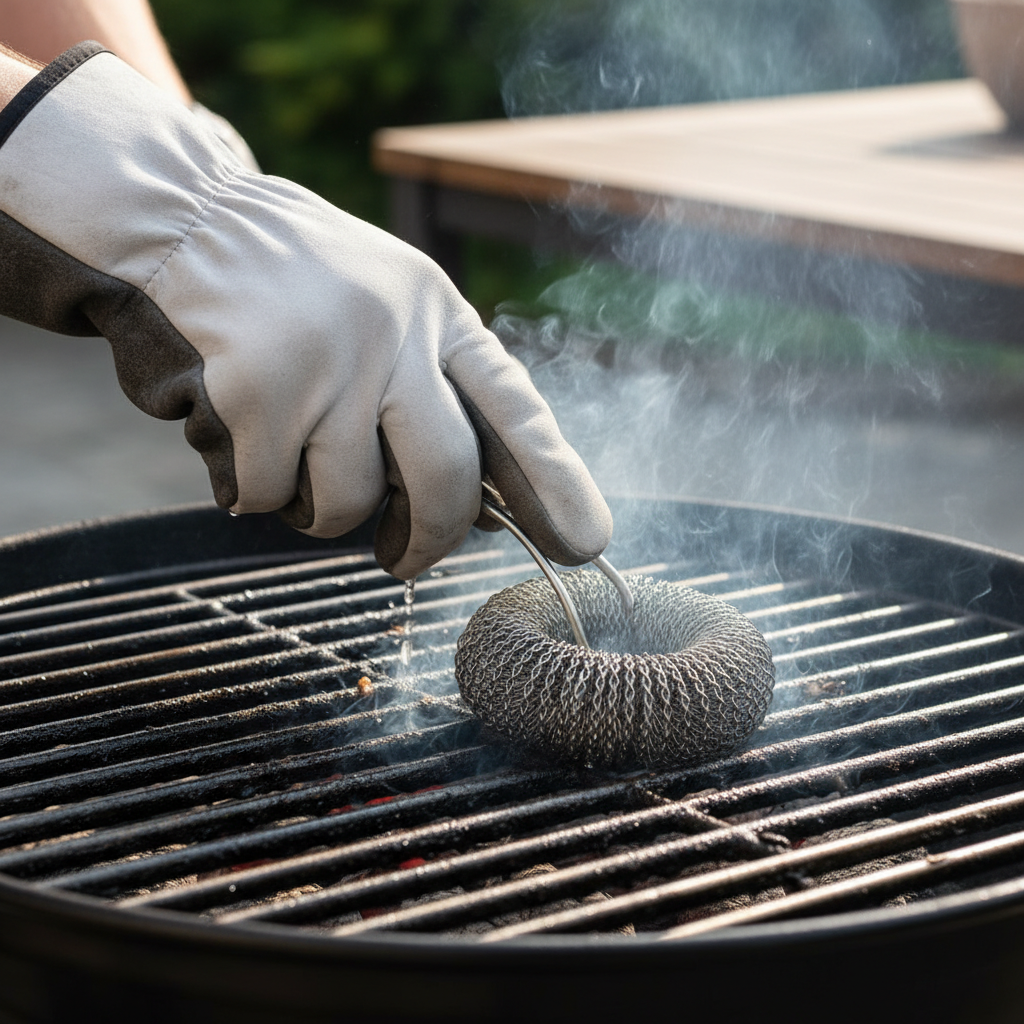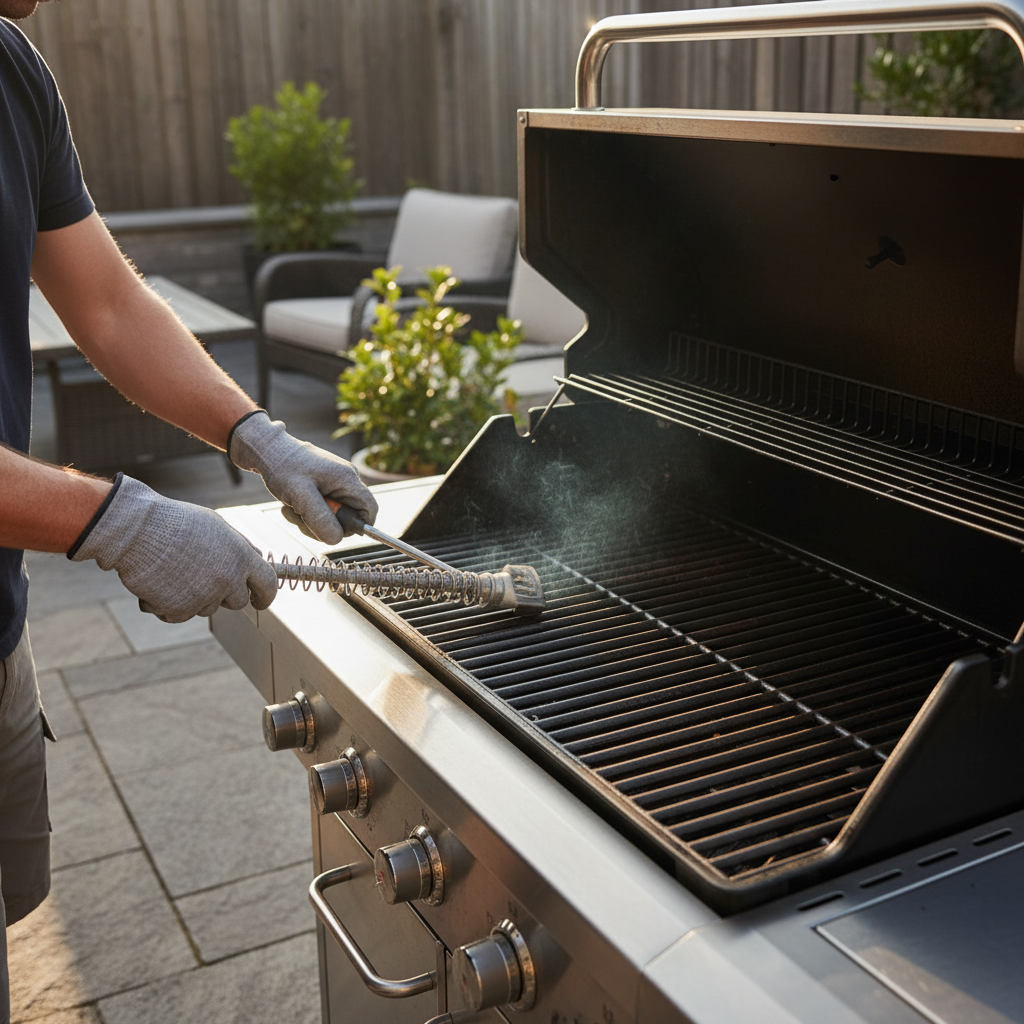
Easy BBQ Maintenance Habits for Top Grilling Performance
Introduction
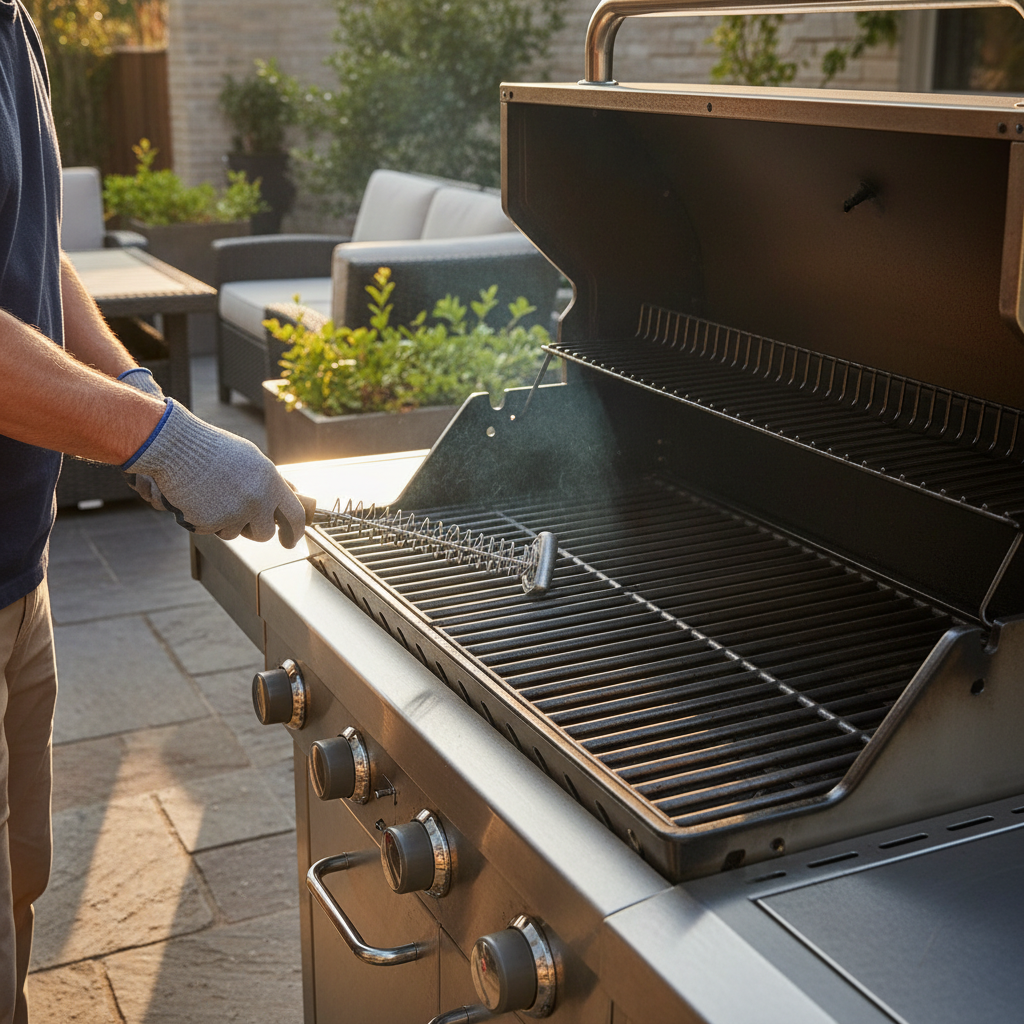
A shining barbecue grill isn’t just about aesthetics; it’s about performance, safety, and the taste of your food. Regular BBQ maintenance is the secret to extending the life of your grill and ensuring every meal cooked on it is delicious and worry-free. Neglecting your grill can lead to uneven heating, flare-ups, rusted components, and ultimately, a shorter lifespan for your beloved outdoor cooking companion. But keeping your BBQ in top shape doesn’t have to be a daunting task. With a few easy maintenance habits, you can enjoy peak grilling performance for years to come. Let’s dive into the simple routines that will transform your grilling experience.
Pre-Grill Prep: The First Step to a Clean Cookout
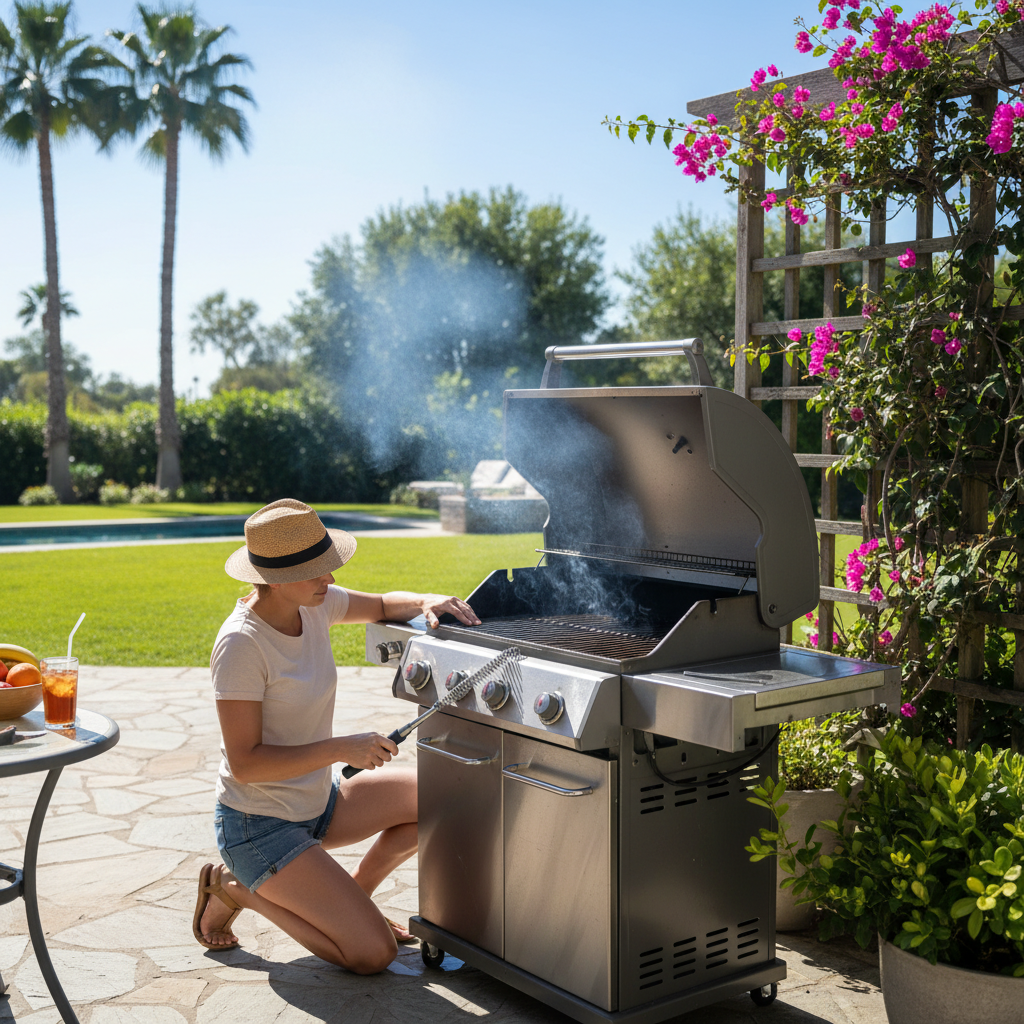
Before you even light the flame, a little preparation goes a long way in ensuring a clean cooking surface and preventing food from sticking.
Preheat and Scrape
This is arguably the most fundamental and effective pre-grill habit. Before every use, preheat your grill to high for 10-15 minutes. This intense heat turns any leftover food particles into ash, making them easier to remove. Once preheated, use a safe grill brush (bristle-free) or a wooden grill scraper to vigorously clean the grates. This removes charred residue, providing a pristine surface for your new ingredients. A clean grate also helps create those perfect sear marks!
Check for Grease Buildup
Briefly inspect your grill’s interior for any visible heavy grease buildup, especially around the burners or heat deflector plates. Excessive grease can cause dangerous flare-ups. If you notice significant accumulation, a quick wipe-down with a paper towel can prevent immediate issues. For more stubborn areas, a dedicated grill cleaning spray/degreaser can be effective.
Post-Grill Care: Essential for Longevity
Just as important as pre-grill prep is what you do immediately after cooking. This prevents food and grease from hardening, making future cleaning much simpler.
The Hot Scrape
Once you’ve removed your food, turn the burners to high again for 5-10 minutes. This second burn-off helps carbonize any fresh food remnants. While the grates are still warm (but not scalding hot), use your safe grill brush or scraper to give them another good scrub. It’s much easier to clean soft, warm residue than hardened, cold grime.
Wipe Down Surfaces
After the grates are cleaned, allow the grill to cool down completely. Then, use a damp cloth or microfiber cleaning towel to wipe down the exterior and interior surfaces, including the lid and side tables. This removes grease splatters and food debris that can attract pests or lead to rust over time. For stainless steel surfaces, wipe with the grain to avoid streaks.
Empty Drip Trays
Grease management is crucial. The drip tray collects excess fat and drippings. Regularly emptying and cleaning this tray prevents grease fires and unpleasant odors. If your grill uses them, replace disposable drip tray liners after every few uses or when visibly full. This simple step prevents a messy, hazardous buildup.
Weekly & Monthly Habits for Deeper Cleanliness
Beyond daily habits, incorporating weekly and monthly tasks ensures every part of your grill stays in pristine condition.
Deep Clean Grates and Burners
Once a month (or more frequently if you grill often), remove your grates and burner covers (flavorizer bars). Soak the grates in warm, soapy water or a mixture of cleaning vinegar and baking soda for tougher grime. Scrub them thoroughly with a brush or sponge. Clean the burner covers by scraping off any built-up residue. Ensure burner ports are clear of obstructions; a small wire or paperclip can help clear them if needed.
Clean the Firebox/Cookbox
Over time, ash and charred debris accumulate in the bottom of your grill’s cookbox. Once cooled, remove the grates and burner covers, then scrape down the sides of the firebox into the drip pan area. Use a scraper or spatula to push all the debris into the pan, then remove and dispose of it. This improves airflow and prevents corrosion.
Inspect Hoses and Connections
For gas grills, safety is paramount. Periodically check gas hoses for cracks, fraying, or any signs of wear. Ensure all connections are secure. A simple way to check for gas leaks is to brush a soapy water solution over the connections while the gas is on (but the grill is off). If bubbles appear, you have a leak and should address it immediately. This simple inspection is vital for safe operation.
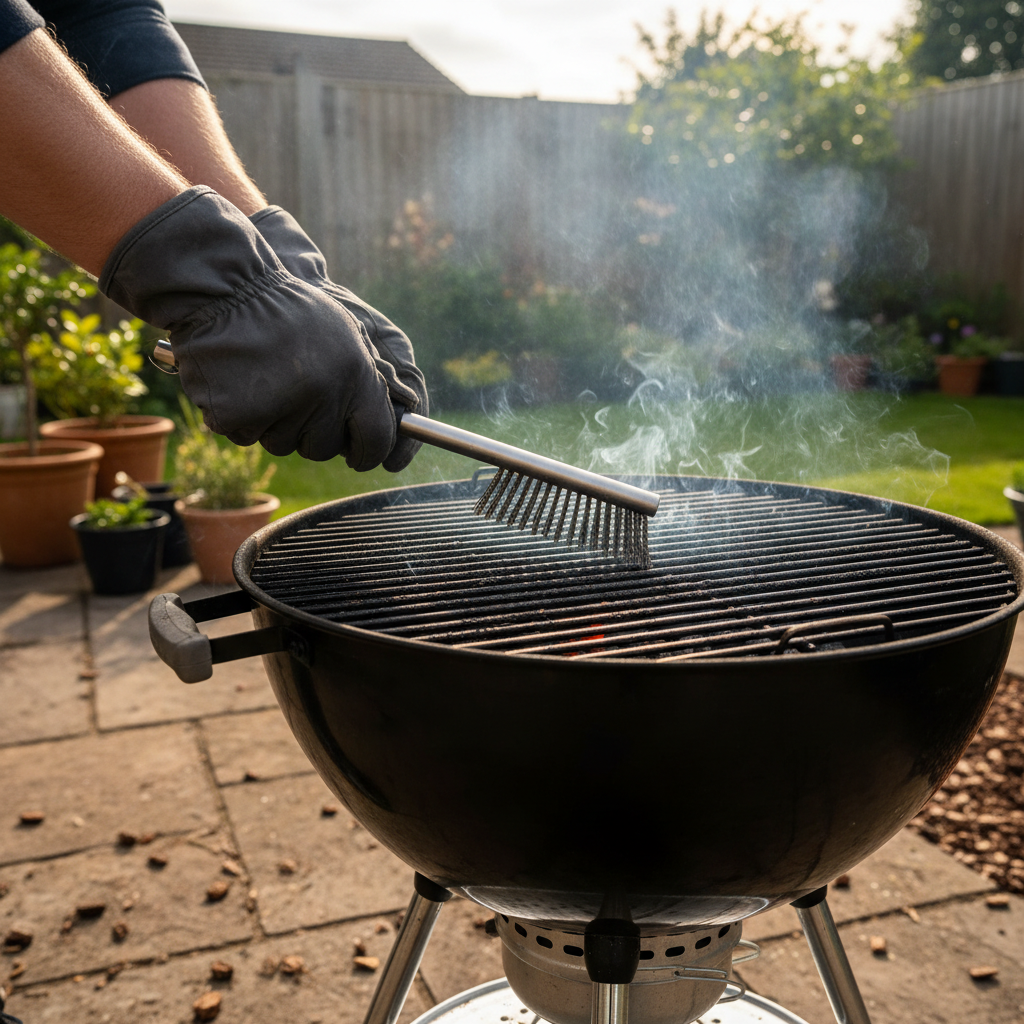
Seasonal Maintenance: Preparing for Storage and Use
Whether you’re tucking your grill away for winter or bringing it out for summer, seasonal care is crucial for its longevity.
End-of-Season Deep Clean
Before storing your grill for an extended period, give it the most thorough cleaning of the year. This involves everything mentioned above, plus removing burner tubes for cleaning, checking igniters, and cleaning the interior of the lid and firebox with a heavy-duty degreaser or grill cleaning stone. Ensure everything is completely dry before storage to prevent rust and mold.
Protect Your Investment with a Cover
A high-quality grill cover is your grill’s best defense against the elements. Rain, snow, UV rays, dust, and even pollen can cause significant damage and accelerate wear and tear. Always cover your grill when not in use, even if it’s just overnight. This simple habit keeps your grill looking new and protects its components from corrosion.
Winter Storage Tips
If you live in a cold climate and don’t grill year-round, proper winter storage is key. After a thorough cleaning and drying, disconnect and store propane tanks in an upright position outdoors, away from the grill and any ignition sources. For natural gas grills, turn off the gas supply. Store the grill in a garage or shed if possible, covered. This protects it from extreme temperatures and moisture.
Common BBQ Maintenance Mistakes to Avoid
Even with good intentions, some common errors can hinder your grill maintenance efforts.
Neglecting the Drip Pan
We’ve mentioned it, but it bears repeating: a neglected drip pan is a fire hazard. Overflowing grease can ignite, leading to dangerous flare-ups and potential damage to your grill and surroundings. Make emptying it a non-negotiable part of your post-grill routine.
Using Wire Bristle Brushes
While effective at cleaning, traditional wire bristle brushes pose a serious health risk. Bristles can break off, stick to the grates, and accidentally transfer to food, leading to serious internal injuries if ingested. Always opt for bristle-free alternatives like coiled wire brushes, grill stones, or wooden scrapers.
Skipping the Cover
Many grill owners underestimate the importance of a grill cover. Leaving your grill exposed to the elements, even for short periods, allows moisture, dust, and debris to accumulate. This accelerates rust and deterioration, significantly shortening your grill’s lifespan. Invest in a good weather-resistant grill cover and use it religiously.
Frequently Asked Questions
Q: How often should I deep clean my BBQ grill?
A: For regular grillers, a deep clean is recommended at least once a month. If you only grill occasionally, every 2-3 months or seasonally might suffice. A thorough end-of-season clean before storage is always essential.
Q: Can I use household cleaners on my grill?
A: It’s best to use cleaners specifically designed for grills, such as Goo Gone Grill & Grate Cleaner, as they are formulated to tackle tough grease and carbon without damaging grill materials. For natural options, a paste of food-grade baking soda and water, or a spray of cleaning vinegar, can work for lighter cleaning.
Q: What should I do if my grill grates are really rusty?
A: For light rust, a paste of baking soda and water, scrubbed with a stiff brush, can work. For heavy rust, consider specialized rust removers or replacement grates. Ensure you season cast iron grates after cleaning to prevent future rust.
Q: Is it necessary to oil the grates before grilling?
A: Oiling your grates (once clean and hot) helps prevent food from sticking. Use a high smoke point oil (like canola or grapeseed) applied with a paper towel held by tongs. This creates a non-stick surface and helps season your grates over time.
Conclusion
Adopting these easy BBQ maintenance habits is a small investment of time that yields significant returns. A well-maintained grill not only looks better but performs better, cooks safer, and lasts longer. By incorporating these simple pre-grill, post-grill, weekly, monthly, and seasonal routines, you’ll ensure your BBQ remains a reliable centerpiece for countless memorable cookouts. Happy grilling!
BBQCleaner.com is a participant in the Amazon Services LLC Associates Program, an affiliate advertising program designed to provide a means for sites to earn advertising fees by advertising and linking to Amazon.com. We may earn a commission from qualifying purchases made through the links on this page.

